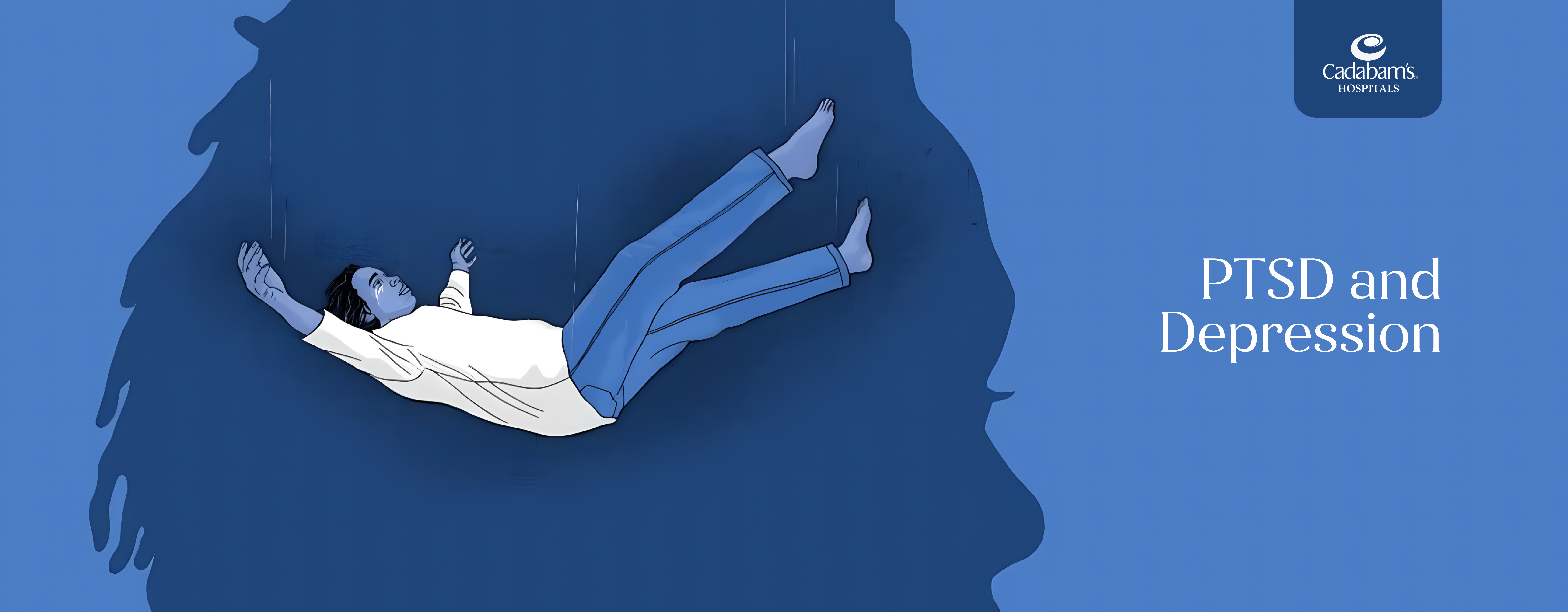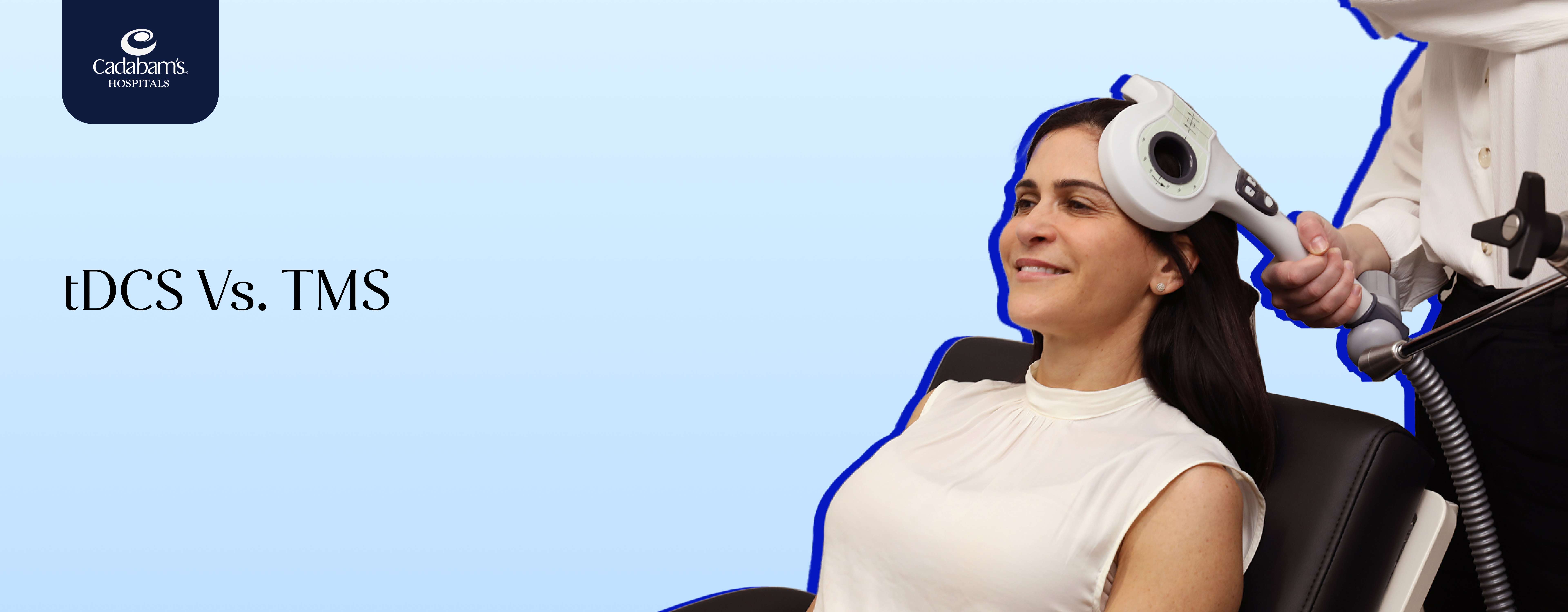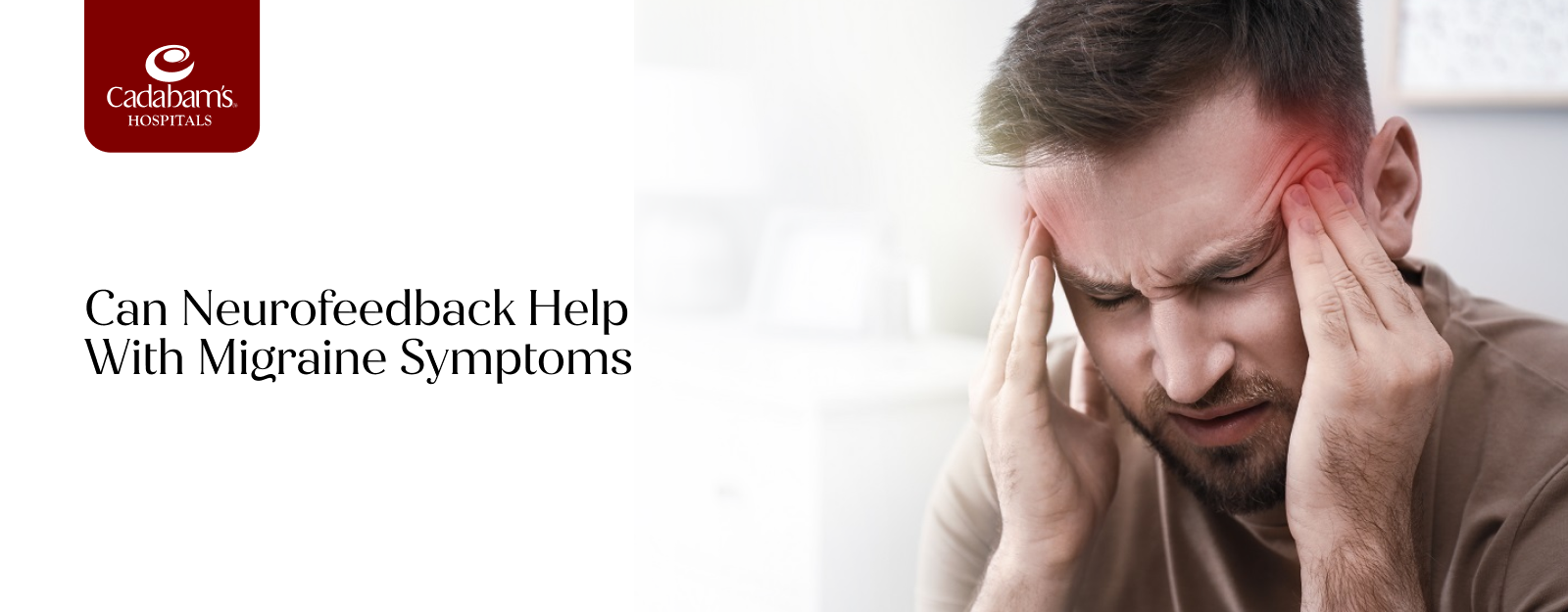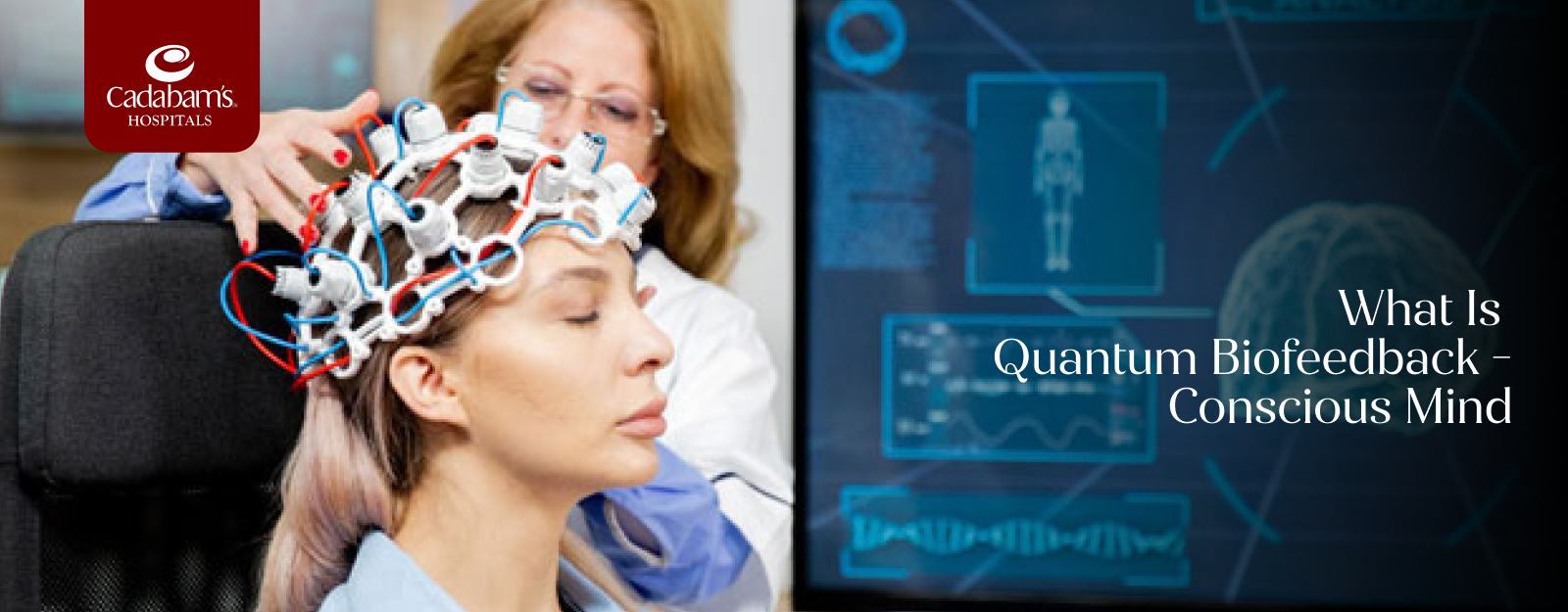Table of Content
Many mental health conditions often coexist with each other, and it is common to develop depression after experiencing traumatic or stressful events. People with Post-Traumatic Stress Disorder (PTSD) have a high chance of being diagnosed with depression too, and both symptoms can affect your mood, interests, energy levels, and emotions.
Insights into PTSD and Depression
PTSD is when an individual goes through a traumatic event and experiences a long-term effect on their physical, emotional, or psychological well-being. Natural disasters, car accidents, abusive relationships, the deaths of a loved one, or any violent encounter are all examples of traumatic events.
Depression is a chronic mood disorder characterised by a prolonged feeling of intense sadness, worthlessness, and hopelessness that affects your daily life severely. Depression can overlap with physical illnesses too.
The Link Between PTSD and Depression
Depression and PTSD share similar symptoms; therefore, it is possible to have both disorders at once. If you have the other, your chances of having one go up.
The Role of Increased Trauma
Some individuals are left with deeper scars when they experience traumatic events, and this can significantly increase the risk of depression. These events can be overwhelming and hinder your ability to cope, which eventually leads to feelings of hopelessness and helplessness, both of which are key symptoms of depression.
The Impact of PTSD on Depression Development
While an individual with PTSD experiences constant anxiety during flashbacks or nightmares, these distressing feelings can trigger depression. They fear that experiencing flashbacks means reliving the same experiences again in reality, which makes them agitated always.
The Genetic Connection
It is not a certainty that you will experience depression yourself if you have a family history of depression. However, it does raise a risk, especially if you have gone through traumatic events. Genetics may have a role in increasing your vulnerability to depression.
Common PTSD Symptoms
- Re-experiencing memories: People with PTSD have constant flashbacks or intrusive memories about the traumatic event, and they might show different emotional or physical reactions to it.
- Avoidance: Certain things, places or events are associated with their trauma therefore they rigorously avoid these triggers and isolate themselves.
- Mood swings and negative thoughts: They will change their mood abruptly and have negative thoughts like blaming themselves constantly, hopelessness, distrust, and isolating themselves.
- Changes in behaviours and reactions: Because of their past traumatic experience, they are always startled, frightened, angry or irrational. It makes them oversensitive to noises and other stimuli.
Symptoms of Depression
- Experiencing persistent sadness or despair: One of the most common symptoms is a prolonged feeling of sadness, which impairs their social relationships.
- Irregular sleep patterns: Depressed people have difficulty sleeping. They are either oversleeping or having insomnia, which harms their physical health too.
- Suffering from fatigue or lacking energy: People with depression are often fatigued or low on energy because of irregular sleep patterns which make them not partake in any social gathering.
- Loss of interest in previously enjoyable activities: They may not enjoy activities they once liked and feel like nothing can make them happy.
- Challenges with concentration and decision-making: It might be difficult for them to make decisions, read, or watch television since it is difficult to concentrate.
- Battling feelings of worthlessness: Since everything seems like bleak for them, they constantly feel like they are worthless and develop suicidal thoughts.
PTSD vs. Depression: Overlapping Symptoms
Both PTSD and depression have several overlapping symptoms that affect their daily functioning. Symptoms can vary case by case, but some common symptoms are:
Sleep disturbances and concentration issues
One of the most common overlapping symptoms is sleep disturbance. People with PTSD and depression have trouble maintaining a healthy sleeping pattern because of their constant anxiety. Their regular sleep patterns lead them to have concentration issues. Decision-making and keeping track are very difficult for them.
Reduced interest in previously enjoyed activities
Many of them are not interested in engaging in activities they were once fond of and prefer social isolation. Finding no meaning or pleasure in these activities further worsens their condition.
Increased irritability and anger
People with depression and PTSD have severe mood swings and exhibit irritability and anger unexpectedly. They constantly feel distrustful, agitated, and anxious about everything, making it difficult to maintain healthy relationships and a sense of normalcy.
Feeling disconnected from others
Avoiding social gatherings, irregular sleep patterns, not enjoying anything, constant fear and anxiety, and a lack of a supportive circle would eventually make them feel disconnected from others. Isolating themselves becomes a defence mechanism.
Feelings of sadness, hopelessness
Another overlapping symptom is intense sadness and hopelessness. They may see the world in a negative way and struggle to do their daily activities. These can make it incredibly challenging to maintain daily routines, work, and relationships.
Major Difference Between Depression and PTSD
Though both depression and PTSD share similar symptoms, they are distinct mental health disorders. The difference lies in the cause of the condition. PTSD is triggered by experiencing a traumatic event, while depression can be caused by various factors, not necessarily a specific trauma. The overlapping symptoms can also vary on the level of severity.
How Commonly PTSD and Depression Co-occur
Depression can also be a common response after a traumatic or stressful event. People who experience traumatic events or situations frequently develop depression, which can arise either soon after the event or much later, even after physical injuries have healed. Studies have shown that half of all people with PTSD also have co-occurring major depressive disorder.
Dual Diagnosis: Navigating PTSD and Depression Together
If an individual experiences prolonged feelings of sadness and anxiety due to traumatic events that happened in past might dually diagnosed with PTSD and depression.
The Phenomenon of Co-Occurring Conditions
Depression and PTSD can occur on their own, but it's common to have both as co-occurring disorders – meaning someone has more than one mental health diagnosis at the same time. Studies have found that people with PTSD have a higher chance of getting depression, and when both disorders are present together, it can disrupt your daily life and impair your social relationships severely.
The Varied Duration of PTSD and Depression
While it’s common to have PTSD and depression as co-occurring disorders, both have different durations. To be diagnosed with PTSD, symptoms must be present for at least one month, and it can last for months and years. It can turn into a lifelong disorder if left untreated. For depression, the symptoms can persist for at least two weeks and can prolong for months, too.
The Catalysts of Trauma
Trauma is not limited to military combat, which is a common misconception. It can be any event that had a great impact on your overall well-being. Some of the most common events triggering PTSD and depression are divorce, any disasters, violent encounters, physical, emotional, sexual or emotional abuse, childhood trauma, or death.
When to Seek Professionals Help for PTSD and Depression
Any mental health disorders can have a severe impact on your behaviour and cognitive abilities, which further isolate them. If an individual is struggling with the symptoms of PTSD and depression that impair your daily functioning, it is best to seek professional support. A mental health professional will create an individualised treatment plan for you to manage symptoms effectively.
Treatment Approaches for PTSD and Depression
Many treatment options are available to treat PTSD and depression and can be personalised according to their needs and symptoms.
Medication Options
One of the treatment approaches is medication. Your psychiatrist might prescribe you antidepressants, anti-anxiety medicines, antipsychotic medicines, and sleep aids to manage your PTSD and depression symptoms and improve your overall well-being.
The Role of Support Groups
Many people with depression and PTSD suffer from social isolation. Support groups can be a great motivator to get or continue treatment. You will be able to meet people with similar conditions and talk openly and honestly about your feelings, which will make you less likely to feel lonely or judged.
Cognitive Behavioural Therapy (CBT)
Talk therapy like, Cognitive Behavioural Therapy (CBT) helps you navigate your thought process around the traumatic event or any negative thoughts that fuel your unhealthy behaviours. CBT replaces those thoughts with positive ones with coping strategies to manage triggers healthily.
Group and Family Support
Involving family members in the recovery process is crucial, especially for individuals with depression and PTSD who live with them. Their support can significantly accelerate the pace of recovery. This involvement also helps family members develop a deeper understanding of the nature of the disorders and the challenges associated with them.
Lifestyle Adjustments for Depression
Other than therapies and medications, changing your lifestyle will help you ease your symptoms. These include a balanced diet, physical activities like yoga, swimming, running, or dancing, 8 hours of uninterrupted sleep, and healthy hobbies that are supportive of your recovery.
The Benefits of Light Therapy
Light therapy, also known as phototherapy, involves controlled exposure to artificial light in a specific setting. This treatment is particularly helpful for people experiencing seasonal depression, which often occurs during winter months with less daylight. By exposing you to bright light, it can improve your mood and reduce the severity of your symptoms.
Healing from PTSD and Depression: Finding Hope at Cadabams
There's no shortcut to treating mental health conditions, and dual diagnosis can be particularly challenging due to its underlying factors. However, recovery is possible with the right support and treatment plan. Our expert team of mental health professionals with state-of-the-art technology at Cadabams works with you to create a personalised treatment plan that caters to your needs. Our therapist will foster honest and open communication in a non-judgmental space.
FAQ
1. Can PTSD cause depression?
Not every individual with PTSD will have depression however, people with PTSD have a higher chance of developing depression than people without it.
2. Can you have both PTSD and depression at the same time?
It's possible to have both PTSD and depression at the same time, and due to similar symptoms, they are easily mistaken for one another.
3. What are the treatment options for PTSD and depression?
Therapies like CBT, Family therapy, support groups, and different medications are treatment options available for depression and PTSD.
4. How to help someone with PTSD and depression
Encouraging them to consult with mental health professionals can help them to ease symptoms and manage their triggers effectively.
5. How do PTSD and depression differ?
You will develop PTSD only after experiencing traumatic events, whereas depression can stem from any event or situation. Both share similar symptoms, like anxiety, isolation, and loss of interest.
How Cadabam's Help you for Addiction?
- 410+ Professional Consultants
- 1,00,00+ Happy Faces
- 120+ Currently Seeking Treatments











